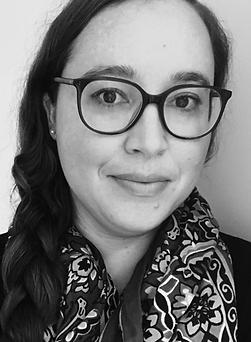Contributed by Emma Amador

Over the past ten years I have been researching and writing about the life and work of Dr. Antonia Pantoja, Black Puerto Rican Civil Rights activist, scholar, and educator whose work changed the world. While writing my first book, The Politics of Care: Puerto Ricans, Citizenship, and Migration after 1917 on the history of Puerto Rican care workers, social work, and the history of social welfare programs, I found Pantoja to be a very important part of the story that I wanted to tell. As a social worker and educator Pantoja innovated a community organizing approach in the institutions she built, and she helped inspire new generations to organize politically. My research led me to begin dreaming about writing a book about Pantoja that would introduce more readers, students, and policymakers to her life and legacy.
This fall, the University of Connecticut’s College of Liberal Arts and Sciences supported my research by funding my proposal with a CLAS Faculty Funding in Academic Themes Grant. This funding will allow me to begin writing the book, Bright Futures: Antonia Pantoja and the Practice of Ethnic Studies. This monograph will be the first book-length biography about Pantoja, and it will aim to introduce readers to her life and to examine her political work and contributions to the history of education in the United States. From the 1940s through the early 2000s Pantoja fought for education centered on the lives and experiences of people of color, Latino/a/xs, Black diasporic communities, and Spanish speakers in the US. Her work was shaped by her own experiences as a Black Puerto Rican, Afro-Latina, and lesbian who proudly came to identify as “Nuyorican.” This biography will explore how Pantoja— in dialogue with the communities in which she lived—merged community organizing approaches with radical social work methods to create a practice of “doing” Ethnic Studies in collaboration with these communities and her students. These practices envisioned bright futures for all people, especially people of color. They also can provide powerful models and tools for those of us learning about and teaching Ethnic Studies today.
My biography of Pantoja closely relates to my role as an educator teaching at UConn. One of my favorite courses to teach is “Latina History and Biography,” a class that examines the historical experiences of Latinas in the United States through a focus on life history, biography, memoir, and testimonio. In this course, my students love learning about Pantoja, and my discussions with students over the years has deeply shaped the project. It is my student’s thirst for more knowledge about Pantoja, Ethnic Studies, and the history of Latinas, that inspires and enriches this project. This summer I will present some of my preliminary work on Bright Futures and my broader research on Latina history and biography at the Berkshire Conference on the History of Women alongside other Latina feminist biographers.